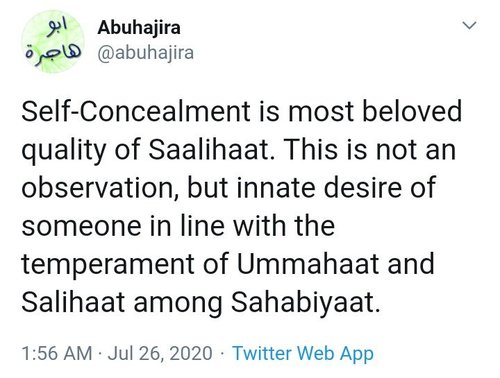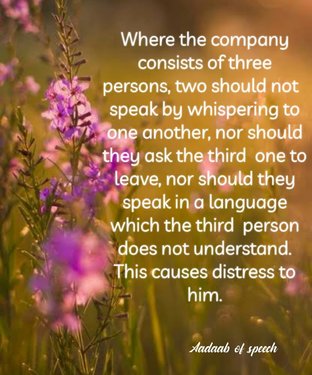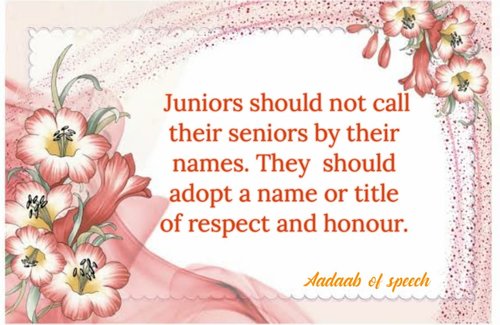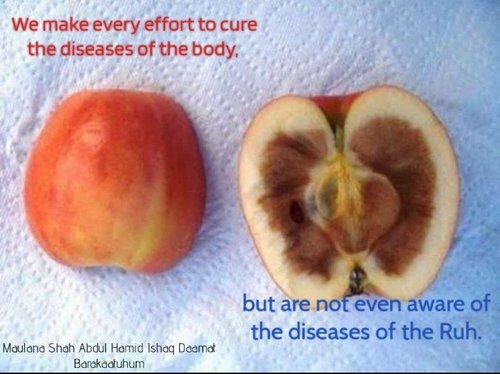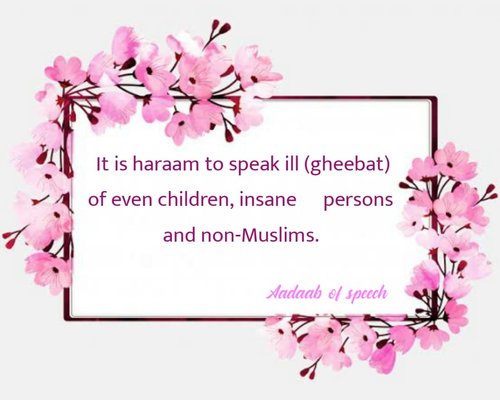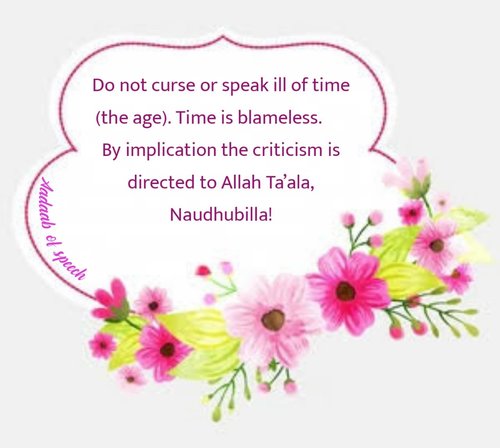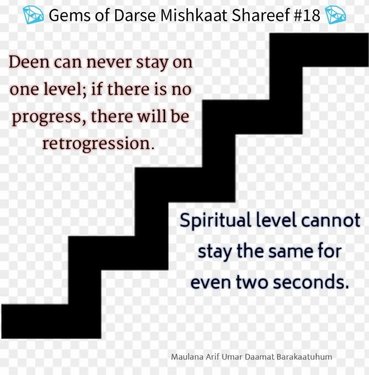-
Posts
1,751 -
Joined
-
Last visited
-
Days Won
106
Content Type
Profiles
Forums
Events
Everything posted by Bint e Aisha
-
اللھم لا تجعلنا منھم
- 1 reply
-
- 1
-

-
-
*QUESTION* Please let me know on whom Qurbani is obligatory.It has been practice to make Qurbani for Prophet MUHAMMAD(Peace be upon him) and for deceased, family members is this allowed. *ANSWER* In the name of Allah, Most Gracious, Most Merciful Assalaamu `alaykum waRahmatullahi Wabarakatuh 1. Free (not a slave) 2. Muslim 3. Muqīm (not a traveler) 4. Owns the amount of nisāb of zakāh مجمع الأنهر - (ج 2 / ص 514)( وإنما تجب ) التضحية دون الأضحية لما تقرر من أن الوجوب من صفات الفعل إلا أن القدوري ومن تبعه قال : ذلك توسعة ومجاز والمراد بالوجوب الوجوب العملي لا الاعتقادي حتى لا يكفر جاحدها كما في المنح ( على حر ) فلا تجب على العبد ( مسلم ) فلا تجب على الكافر ( مقيم ) فلا تجب على المسافر لقول علي رضي الله تعالى عنه ليس على مسافر جمعة ولا أضحية وعن مالك لا يشترط الإقامة ويستوي فيه المقيم بالمصر والقوي والبوادي ( موسر ) ؛ لأن العبادة لا تجب إلا على القادر وهو الغني دون الفقير ومقداره ما تجب فيه صدقة الفطر وقوله ( عن نفسه ) يتعلق بقوله تجب ؛ لأنه أصل في الوجوب عليه Nabi صلى الله عليه وسلم made qurbāni on behalf of his ummah. Similarly, it has been narrated the Sayyidunā Ali رضي الله تعالى عنه used to make qurbāni on behalf of Nabi صلى الله عليه وسلم. سنن أبى داود مع بذل المجهود - (2795)حدثنا إبراهيم بن موسى الرازي حدثنا عيسى حدثنا محمد بن إسحق عن يزيد بن أبي حبيب عن أبي عياش عن جابر بن عبد الله قال ذبح النبي صلى الله عليه وسلم يوم الذبح كبشين أقرنين أملحين موجأين فلما وجههما قال إني وجهت وجهي للذي فطر السموات والأرض على ملة إبراهيم حنيفا وما أنا من المشركين إن صلاتي ونسكي ومحياي ومماتي لله رب العالمين لا شريك له وبذلك أمرت وأنا من المسلمين اللهم منك ولك وعن محمد وأمته باسم الله والله أكبر ثم ذبح Sayyiduna Jabir ibn Abdullah narrates that Nabi صلى الله عليه وسلم on the day of slaughtering, slaughtered two castrated rams which had horns and was more white than black in colour. When he had them facing the qiblah, he recited: {إِنِّي وَجَّهْتُ وَجْهِيَ لِلَّذِي فَطَرَ السَّمَاوَاتِ وَالْأَرْضَ حَنِيفاً وَمَا أَنَا مِنَ الْمُشْرِكِينَ}إِنَّ صَلاتِي وَنُسُكِي وَمَحْيَايَ وَمَمَاتِي لِلَّهِ رَبِّ الْعَالَمِينَ لا شَرِيكَ لَهُ وَبِذَلِكَ أُمِرْتُ وَأَنَا أَوَّلُ الْمُسْلِمِينَاللهم منك ولك وعن محمد وأمته باسم الله والله أكبر I have, indeed, turned my face straight towards the One who created the heavens and the earth, and I am not one of those who associate partners. My prayer my sacrifice my life my death is for Allah the lord of the worlds. He has no partner. Thus I have been commanded and I am the first to submit.O Allah this is from You and for You on behalf of Muhammad and his ummah. Then he slaughtered them. سنن أبى داود مع بذل المجهود - (2790)2408 - حدثنا عثمان بن أبي شيبة حدثنا شريك عن أبي الحسناء عن الحكم عن حنش قالرأيت عليا يضحي بكبشين فقلت له ما هذا فقال إن رسول الله صلى الله عليه وسلم أوصاني أن أضحي عنه فأنا أضحي عنه Hanashرحمه الله تعالى mentions:I saw Ali slaughtering two rams. So I asked what is this? He replied that Nabi صلى الله عليه وسلم bequeathed that I slaughter on his behalf. Therefore, I am slaughtering. سنن الترمذى - (1495)حَدَّثَنَا مُحَمَّدُ بْنُ عُبَيْدٍ الْمُحَارِبِيُّ الْكُوفِيُّ حَدَّثَنَا شَرِيكٌ عَنْ أَبِي الْحَسْنَاءِ عَنْ الْحَكَمِ عَنْ حَنَشٍ عَنْ عَلِيٍّأَنَّهُ كَانَ يُضَحِّي بِكَبْشَيْنِ أَحَدُهُمَا عَنْ النَّبِيِّ صَلَّى اللَّهُ عَلَيْهِ وَسَلَّمَ وَالْآخَرُ عَنْ نَفْسِهِ فَقِيلَ لَهُ فَقَالَ أَمَرَنِي بِهِ يَعْنِي النَّبِيَّ صَلَّى اللَّهُ عَلَيْهِ وَسَلَّمَ فَلَا أَدَعُهُ أَبَدًاقَالَ أَبُو عِيسَى هَذَا حَدِيثٌ غَرِيبٌ لَا نَعْرِفُهُ إِلَّا مِنْ حَدِيثِ شَرِيكٍ وَقَدْ رَخَّصَ بَعْضُ أَهْلِ الْعِلْمِ أَنْ يُضَحَّى عَنْ الْمَيِّتِ وَلَمْ يَرَ بَعْضُهُمْ أَنْ يُضَحَّى عَنْهُ و قَالَ عَبْدُ اللَّهِ بْنُ الْمُبَارَكِ أَحَبُّ إِلَيَّ أَنْ يُتَصَدَّقَ عَنْهُ وَلَا يُضَحَّى عَنْهُ وَإِنْ ضَحَّى فَلَا يَأْكُلُ مِنْهَا شَيْئًا وَيَتَصَدَّقُ بِهَا كُلِّهَا قَالَ مُحَمَّدٌ قَالَ عَلِيُّ بْنُ الْمَدِينِيِّ وَقَدْ رَوَاهُ غَيْرُ شَرِيكٍ قُلْتُ لَهُ أَبُو الْحَسْنَاءِ مَا اسْمُهُ فَلَمْ يَعْرِفْهُ قَالَ مُسْلِمٌ اسْمُهُ الْحَسَنُ Hanash رحمه الله تعالىmentions that Sayyiduna Ali رضي الله تعالى used to slaughter two rams, one for Nabi صلى الله عليه وسلم and the other for himself. When questioned regarding this he replied that Nabi صلى الله عليه وسلم commanded me. Therefore, I will never leave this practice. (Tirmidi 1495) These narrations show Nabi صلى الله عليه وسلم’s love for performing qurbani that even after his demise he still wants qurbāni to be performed on his behalf. Therefore, whoever loves Nabi صلى الله عليه وسلم should also try to do qurbāni on his behalf and fulfill his wish and desire. And Allah knows best Wassalaamu `alaykum Ml. Ishaq E. Moosa, Student Darul IftaaChecked and Approved by:Mufti Ebrahim Desai Darul Iftaa
-

On Taqwa (Piety / God Consciousness)
Bint e Aisha replied to ummtaalib's topic in Matters of the Heart
I'm on level 1 by the fadhl of Allah. May Allah make me reach level 4. Ameen -
It was said to ‘Aa’ishah (may Allah be pleased with her): Which type of woman is best? She said: The one who does not know about saying bad things, and she is not crafty like men; her focus is on adorning herself for her husband and taking care of her family. [Muhaadaraat al-Udaba’ by ar-Raaghib al-Asfahaani (1/410); ‘Uyoon al-Akhbaar by Ibn Qutaybah (1/375).]
-

Women Proposing Marriage to Men in Islam
Bint e Aisha replied to ColonelHardstone's topic in Hanafi Fiqh (Women)
Excellent presentation! جزاك الله خيرا -
CONCEAL YOUR BLESSINGS Question I heard this saying attributed to Nabi (sallahu ‘alayhi wasallam) at a gathering and was wondering if you could comment on its authenticity and explain its meaning: استعينوا على قضاء حوائجكم بالكتمان فإن كل ذي نعمة محسود Answer These words have been reported as a Hadith by several Sahabah (radiyallahu’anhum) with chains that vary in their levels of weakness. (Refer: Al-Maqasidul Hasanah, Hadith: 103, Takhrijul Kash-shaf of Zayla’i, vol.2 pg.360 and Sharhul Ihya, vol.8 pg.54.) However, its broader meaning is supported by other texts. See here for these supports. Translation Take help in fulfilling your needs by concealing them. For indeed every favoured person is envied. The explanation of this is that often one encounters people who may be jealous of one’s endeavours and initiatives. If one were to share his plans of achieving certain goals with people, one may find an envious person either becoming an obstacle or even affecting one with the evil eye. Therefore it is best for one to keep one’s plans/aspirations to one’s self and only to those who may assist and who do not become jealous. (Also see Faydul Qadir, Hadith: 985 and At-Taysir, vol.1 pg.147) And Allah Ta’ala Knows best, Answered by: Moulana Muhammad Abasoomar Checked by: Moulana Haroon Abasoomar
-
Question: To what age of the child is the father responsible for the financial support of children Answer In the Name of Allah, the Most Gracious, the Most Merciful. As-salāmu ‘alaykum wa-rahmatullāhi wa-barakātuh. It is the responsibility of the father to maintain his daughters until they get married and his sons until they become mature (Baaligh). However, if one’s son is Baaligh, but cannot fend for himself, then the father must still support him until he can fend for himself.[ii] And Allah Ta’āla Knows Best Checked and Approved by, Mufti Ebrahim Desai البحر الرائق شرح كنز الدقائق ومنحة الخالق وتكملة الطوري (4/ 228) وَقَيَّدْنَا بِالْعَجْزِ عَنْ الْكَسْبِ وَهُوَ بِالْأُنُوثَةِ مُطْلَقًا وَبِالزَّمَانَةِ وَالْعَمَى وَنَحْوِهَا فِي الذَّكَرِ فَنَفَقَةُ الْمَرْأَةِ الصَّحِيحَةِ الْفَقِيرَةِ عَلَى مَحْرَمِهَا فَلَا يُعْتَبَرُ فِي الْأُنْثَى إلَّا الْفَقْرُ، وَأَمَّا الْبَالِغُ الْفَقِيرُ فَلَا بُدَّ مِنْ عَجْزِهِ بِزَمَانَةٍ أَوْ عَمًى أَوْ فَقْءِ الْعَيْنَيْنِ أَوْ شَلَلِ الْيَدَيْنِ أَوْ مَقْطُوعِ الرِّجْلَيْنِ أَوْ مَعْتُوهٍ أَوْ مَفْلُوجٍ زَادَ فِي التَّبْيِينِ أَنْ يَكُونَ مِنْ أَعْيَانِ النَّاسِ يَلْحَقُهُ الْعَارُ مِنْ التَّكَسُّبِ أَوْ طَالِبَ عِلْمٍ لَا يَتَفَرَّغُ لِذَلِكَ وَفِي الْمُجْتَبَى الْبَالِغُ إذَا كَانَ عَاجِزًا عَنْ الْكَسْبِ وَهُوَ صَحِيحٌ فَنَفَقَتُهُ عَلَى الْأَبِ وَهَكَذَا قَالُوا فِي طَالِبِ الْعِلْمِ إذَا كَانَ لَا يَهْتَدِي إلَى الْكَسْبِ لَا تَسْقُطُ نَفَقَتُهُ عَنْ الْأَبِ بِمَنْزِلَةِ الزَّمِنِ وَالْأُنْثَى الفتاوى الهندية (1/ 563) وَنَفَقَةُ الْإِنَاثِ وَاجِبَةٌ مُطْلَقًا عَلَى الْآبَاءِ مَا لَمْ يَتَزَوَّجْنَ إذَا لَمْ يَكُنْ لَهُنَّ مَالٌ كَذَا فِي الْخُلَاصَةِ. كتاب المسائل 5/484 شادی ہونے تک لڑکیوں کے نان نفقہ کی پوری ذمہ داری باپ پر ہے ( لیکن وہ لڑکیاں اگڑ سلائی کڑھائی یا کسی جائز عمل کے ذریعہ کچھ پیسہ کمالیں تو اُن کے اِخراجات اُسی پیسہ سے پورے کئے جائیںگے ) فتاوى حقانية 5/25 [ii] المحيط البرهاني (4/ 91) فأما نفقة الابن الكبير فليس على الأب إذا كان معسراً المحيط البرهاني للإمام برهان الدين ابن مازة (4/ 270) [2] قال: والصحيح الذي به قوة العمل إلا أنه لا يُحْسِنْ العمل فنفقته على الأب إذا كان لا يحسن العمل، والناس لا يأمروه بالعمل، فصار هو كالعاجز عن الكسب قال شمس الأئمة الحلواني رحمه الله: الرجل الصحيح قد لا يقدر على الكسب لحرفة أو لكونه من أهل البيوتات فيكون عاجزاً عن الكسب. فإذا كان هكذا كان نفقته على الأب وهكذا قالوا في طالب العلم: إذا كان لا يهتدي إلى الكسب لا تسقط نفقته على الأب بمنزلة الزَّمِنْ والأنثى، هذا الذي ذكرنا كلّه إن كان الأب حاضراً الفتاوى الهندية (11/ 448) ولا يجب على الأب نفقة الذكور الكبار إلا أن الولد يكون عاجزا عن الكسب لزمانة، أو مرض ومن يقدر على العمل لكن لا يحسن العمل فهو بمنزلة العاجز كذا في فتاوى قاضي خان الدر المختار وحاشية ابن عابدين (رد المحتار) (3/ 612) (وَتَجِبُ) النَّفَقَةُ بِأَنْوَاعِهَا عَلَى الْحُرِّ (لِطِفْلِهِ) يَعُمُّ الْأُنْثَى وَالْجَمْعَ (الْفَقِيرِ) الْحُرِّ، فَإِنَّ نَفَقَةَ الْمَمْلُوكِ عَلَى مَالِكِهِ وَالْغَنِيِّ فِي مَالِهِ الْحَاضِرِ؛ فَلَوْ غَائِبًا فَعَلَى الْأَبِ ثُمَّ يَرْجِعُ إنْ أَشْهَدَ لَا إنْ نَوَى إلَّا دِيَانَةً؛ فَلَوْ كَانَا فَقِيرَيْنِ فَالْأَبُ يَكْتَسِبُ أَوْ يَتَكَفَّفُ وَيُنْفِقُ عَلَيْهِمْ (قَوْلُهُ بِأَنْوَاعِهَا) مِنْ الطَّعَامِ وَالْكُسْوَةِ وَالسُّكْنَى، وَلَمْ أَرَ مَنْ ذَكَرَ هُنَا أُجْرَةَ الطَّبِيبِ وَثَمَنَ الْأَدْوِيَةِ، وَإِنَّمَا ذَكَرُوا عَدَمَ الْوُجُوبِ لِلزَّوْجَةِ، نَعَمْ صَرَّحُوا بِأَنَّ الْأَبَ إذَا كَانَ مَرِيضًا أَوْ بِهِ زَمَانَةٌ يَحْتَاجُ إلَى الْخِدْمَةِ فَعَلَى ابْنِهِ خَادِمُهُ وَكَذَلِكَ الِابْنُ (قَوْلُهُ لِطِفْلِهِ) هُوَ الْوَلَدُ حِينَ يَسْقُطُ مِنْ بَطْنِ أُمِّهِ إلَى أَنْ يَحْتَلِمَ، وَيُقَالُ جَارِيَةٌ، طِفْلٌ، وَطِفْلَةٌ، كَذَا فِي الْمُغْرِبِ. وَقِيلَ أَوَّلُ مَا يُولَدُ صَبِيٌّ ثُمَّ طِفْلٌ (قَوْلُهُ الْفَقِيرِ) أَيْ إنْ لَمْ يَبْلُغْ حَدَّ الْكَسْبِ، فَإِنْ بَلَغَهُ كَانَ لِلْأَبِ أَنْ يُؤْجِرَهُ أَوْ يَدْفَعَهُ فِي حِرْفَةٍ لِيَكْتَسِبَ وَيُنْفِقَ عَلَيْهِ مِنْ كَسْبِهِ لَوْ كَانَ ذَكَرًا، بِخِلَافِ الْأُنْثَى كَمَا قَدَّمَهُ فِي الْحَضَانَةِ عَنْ الْمُؤَيِّدِيَّةِ. آپ کے مسائل اور ان کا حال ج 6 ص 734 بچے کا خرچ اس کے باپ کے ذمہ ہے اس کا فرض تھا کے بچے کے اخراجات ادا کرتا http://askimam.org/public/question_detail/45666
-
-
https://youtu.be/d-E5FT2DG-M
-
Jabir reported: The Messenger of Allah, peace and blessings be upon him, said, “When a man retires to his bed, an angel and a devil rush to him. The angel says: End your day with good! The devil says: End your day with evil! If he remembers Allah and then falls sleep, the angel will spend the night to take care of him.” Source: al-Sunan al-Kubrā lil-Nasā’ī 10624 Grade: Hasan (fair) according to Ibn Hajar عَنْ جَابِرٍ أَنَّ رَسُولَ اللهِ صَلَّى اللهُ عَلَيْهِ وَسَلَّمَ قَالَ إِذَا أَوَى الرَّجُلُ إِلَى فِرَاشِهِ ابْتَدَرَهُ مَلَكٌ وَشَيْطَانٌ فَيَقُولُ الْمَلَكُ اخْتِمْ بِخَيْرٍ وَيَقُولُ الشَّيْطَانُ اخْتِمْ بِشَرٍّ فَإِنْ ذَكَرَ اللهَ ثُمَّ نَامَ بَاتَ الْمَلَكُ يَكْلَؤُهُ 10624 السنن الكبرى للنسائي 1/25 المحدث ابن حجر العسقلاني خلاصة حكم المحدث حسن في الأمالي الحلبية
- 3 replies
-
- bad dreams
- dreams
-
(and 1 more)
Tagged with:
-

Aadaab (Etiquettes) of Speech
Bint e Aisha replied to Bint e Aisha's topic in Inspiring Quotes & Poems
-

Aadaab (Etiquettes) of Speech
Bint e Aisha replied to Bint e Aisha's topic in Inspiring Quotes & Poems
-

Aadaab (Etiquettes) of Speech
Bint e Aisha replied to Bint e Aisha's topic in Inspiring Quotes & Poems
-

Aadaab (Etiquettes) of Speech
Bint e Aisha replied to Bint e Aisha's topic in Inspiring Quotes & Poems
-

Aadaab (Etiquettes) of Speech
Bint e Aisha replied to Bint e Aisha's topic in Inspiring Quotes & Poems
-

Aadaab (Etiquettes) of Speech
Bint e Aisha replied to Bint e Aisha's topic in Inspiring Quotes & Poems
-
How can I lead a Sinless life? Question: How can I lead a Sinless life? Answer: In the Name of Allah, the Most Gracious, the Most Merciful. As-salāmu ‘alaykum wa-rahmatullāhi wa-barakātuh By sinless, we understand you enquire about living a life without committing sins. It is our belief that only the prophets are sinless [Masoom] and they do not commit sins. Everyone else besides prophets could commit sins, but could be saved from committing sins [mahfooz]. There are two most effective ways of inculcating the quality of a sinless life. Allah says: يَـٰٓأَيُّہَا ٱلَّذِينَ ءَامَنُواْ ٱتَّقُواْ ٱللَّهَ Translation: O you who believe! Fear Allah [Surah Taubah/ Verse 119] The first prescription is inculcating in one Allah consciousness. Whenever one is in public or in privacy, he is conscious of Allah seeing him. He feels ashamed to violate any order of Allah in the presence of Allah. To simplify this, it is similar to a son in the presence of his father. The difference is the presence of the father is physical. Allah is Omni-present. He is Al-Baseer [all seeing]. There is no time that one is absent from Allah. It is such Allah consciousness that restrains one from committing sins. This quality is inculcated by adopting the company of Allah conscious people [the Ahlullah]. This is the second prescription referred to in the verse: وَكُونُواْ مَعَ ٱلصَّـٰدِقِينَ Translation: And be with the truthful ones. [Surah Taubah/ Verse 119] It is common knowledge one gets influenced with his environment. If one sits in a perfume shop, he gets the good fortune of enjoying the sweet fragrance of the various perfumes and feels refreshed. If one sits in the company of a blacksmith, he will inhale dirt and smokes and feel miserable. When one sits in the company of the Ahlullah, the feeling of Allah consciousness and the love of Allah boiling in their heart can be easily felt. The Ahlullah are fully conscious of Allah. They conduct all their affairs as though they can see Allah and have the conviction that Allah is seeing them. While they have the potential to commit sins, the Allah consciousness in their hearts prevents them from doing so and they live a sinless life. Attach yourself to the Ahlullah to be able to achieve your objective of leading a sinless life. For more information refer to the book: What is the reality of Bai ‘at and Spiritual Reformation? By Hadhrat Mufti Ahmad Khanpuri [Daamat Barakatuhum]. This book is uploaded on our website. Refer to the following link: REALITY OF BAY’AH | http://www.daruliftaa.net/index.php/resources/publications/finish/27-publications/938-the-reality-of-bayah-modified-version And Allah Ta’āla Knows Best Mufti Ebrahim Desai Darul Mahmood | darulmahmood.net https://darulmahmood.net/2020/07/01/how-can-i-lead-a-sinless-life/#more-1695
-
-

Aadaab (Etiquettes) of Speech
Bint e Aisha replied to Bint e Aisha's topic in Inspiring Quotes & Poems
-

Aadaab (Etiquettes) of Speech
Bint e Aisha replied to Bint e Aisha's topic in Inspiring Quotes & Poems
-

Aadaab (Etiquettes) of Speech
Bint e Aisha replied to Bint e Aisha's topic in Inspiring Quotes & Poems
-

Aadaab (Etiquettes) of Speech
Bint e Aisha replied to Bint e Aisha's topic in Inspiring Quotes & Poems
-
-

Interactions with the opposite gender
Bint e Aisha replied to Bint e Aisha's topic in General Islamic Discussions
Shaykh al-Islam Ibn Taymiyah (may Allah have mercy on him) said: The basic principle is that anything that is a means that leads to fitnah (temptation) is not permissible, because the means that lead to mischief must be barred, if that is not outweighed by a greater interest. End quote from Majmoo‘ al-Fataawa (15/419).

